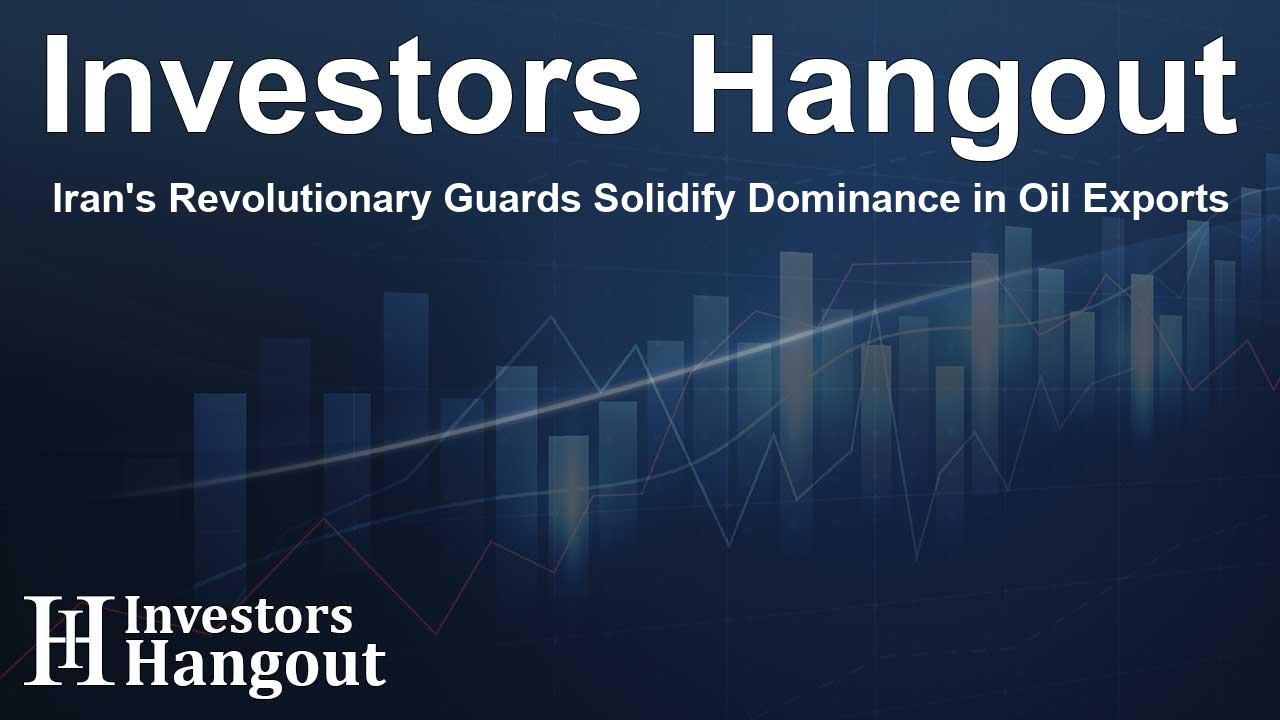Iran's Revolutionary Guards Solidify Dominance in Oil Exports

Iran's Revolutionary Guards Take Charge of Oil Exports
In recent developments, Iran's Revolutionary Guards (IRGC) have significantly strengthened their influence over the country's oil export operations. As a result, they now control nearly half of the oil exports that are vital for Tehran's economy and its support mechanisms across the Middle East.
The Expanding Role of the Revolutionary Guards
According to various reports from Western security officials and sources within Iran, the IRGC's involvement extends through every facet of the oil industry. This includes managing a covert fleet of tankers that transport crude oil, circumventing international sanctions, and utilizing intermediary companies for sales, particularly focusing on the Chinese market.
Impact of Sanctions on Revenue Generation
Despite facing stringent sanctions imposed by the West, specifically those enacted in 2018, Iran's oil sector is still generating significant revenue. Recent estimates indicate that these exports yield more than $50 billion annually, making oil Iran's primary source of foreign currency.
The Shift in Control Within the Oil Sector
Reports indicate an alarming increase in the IRGC's share of oil exports, which has surged from approximately 20% three years ago to an estimated 50% today. This rise is attributed to the Guards' superior expertise in smuggling operations compared to traditional oil management.
Internal Competition with State Institutions
The IRGC's growing presence poses challenges for state-run organizations like the National Iranian Oil Company (NIOC). As the sanctions took hold, those previously managing oil exports had expertise primarily in the oil sector rather than evading restrictions, allowing the IRGC to seize a larger share of export activities.
Broader Economic and Military Implications
The IRGC is not just an economic entity; it wields considerable political and military clout, closely linked to Iran's leadership. This multifaceted control makes it increasingly difficult for Western sanctions to have their intended effect.
Risk Management in Oil Sales
The IRGC has started allocating oil directly to its operations, including the Quds Force, which engages in various military and strategic activities throughout the region. Consequently, oil is sold under terms that reflect the associated risks, with buyers preferring the cheaper offerings from the IRGC despite their terrorist designation by the U.S.
Connection to China and Front Companies
China remains the largest importer of Iranian oil, where the IRGC has established front companies to facilitate sales. One such entity, Haokun Energy, developed as a conduit for trading, exemplifies how these transactions operate under the radar, even after being sanctioned.
A Continuation of Sanction Evasion Tactics
Historical patterns of sanction evasion have continued under intense scrutiny, with intelligence documents revealing that oil money flows through various channels, many obscured by layers of front companies and complex financial transactions.
Shadowy Transactions and International Banking Complicity
One notable incident involved a transaction processed through major international banks, showcasing the intricate web of involvement that can inadvertently entangle global financial systems with Iranian oil sales.
Future Outlook and Implications for Sanctions
The evolving relationship between the IRGC and Iran's oil sector raises pressing questions about the future of international sanctions. As the IRGC continues to solidify its hold over these vital economic interests, observers note that enforcement of any future sanctions could encounter significant challenges.
Frequently Asked Questions
What is the IRGC's role in Iran's oil exports?
The IRGC has extended its influence over oil exports, controlling nearly half of the country's production and sales operations, primarily targeting China.
How have sanctions affected Iran's oil revenue?
Despite sanctions, Iran continues to generate significant oil revenue, estimated at over $50 billion annually, supporting its economy despite restricted access to international markets.
What challenges does the IRGC pose to state oil companies?
The IRGC's growing authority disrupts operations of state entities like NIOC, as they are more adept at navigating and evading sanctions.
How does Iran manage to sell oil under sanctions?
The IRGC utilizes various front companies and clandestine operations to facilitate oil sales, particularly to buyers in China, despite facing international restrictions.
What are the repercussions of the IRGC's involvement in oil operations?
The IRGC's control over oil revenues enhances its power, complicating international sanction enforcement and allowing it to sustain various regional and military operations.
About Investors Hangout
Investors Hangout is a leading online stock forum for financial discussion and learning, offering a wide range of free tools and resources. It draws in traders of all levels, who exchange market knowledge, investigate trading tactics, and keep an eye on industry developments in real time. Featuring financial articles, stock message boards, quotes, charts, company profiles, and live news updates. Through cooperative learning and a wealth of informational resources, it helps users from novices creating their first portfolios to experts honing their techniques. Join Investors Hangout today: https://investorshangout.com/
Disclaimer: The content of this article is solely for general informational purposes only; it does not represent legal, financial, or investment advice. Investors Hangout does not offer financial advice; the author is not a licensed financial advisor. Consult a qualified advisor before making any financial or investment decisions based on this article. The author's interpretation of publicly available data shapes the opinions presented here; as a result, they should not be taken as advice to purchase, sell, or hold any securities mentioned or any other investments. The author does not guarantee the accuracy, completeness, or timeliness of any material, providing it "as is." Information and market conditions may change; past performance is not indicative of future outcomes. If any of the material offered here is inaccurate, please contact us for corrections.